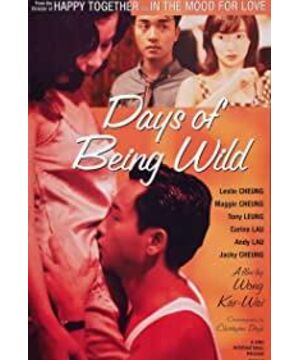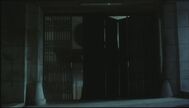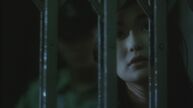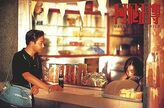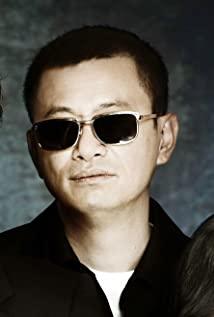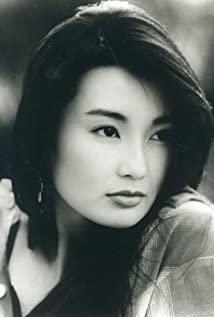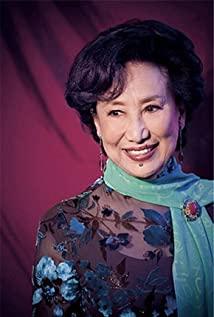Ah Fei, refers to the little gangster who has nothing to do. The male No. 1 Xu Zai is such a "A Fei". Under the expressive performance of his brother, this Xu Zai is so unrestrained, romantic and charming that he can easily get the love of others. Su Lizhen was working in a grocery store, and Xu Zai's brilliant "one minute" story won Su's favor. After the relationship, Su sought a stable relationship with Xu Zai, but was ruthlessly rejected. Lulu is a dancer in a karaoke hall. She met Xu Zai when Xu Zai beat up his adoptive mother's lover, and was brought home by Xu Zai. Lulu wanted to monopolize Xu Zai, but found that it was impossible. Jacky Cheung plays a friend of Xu Zai who likes Lu Lu very much. After Xu Zai left Hong Kong, he wanted to take care of Lu Lu but was rejected.
Andy Lau's role began as a police officer, and he accompanied Su Lizhen when she was in the most pain, acting as a listener. After the death of his mother, he went to run the boat, and he and Xu Zai met unexpectedly in the Philippines and ran for their lives together. Tony Leung appeared at the end of the film as another "footless bird" A Fei.
The complex character setting has also become one of the main symbols of Wong Kar-wai's early films. Most of the characters are inextricably linked: the relationship between Xu Zai and Su Lizhen and Lulu is naturally a lover; Su Lizhen and the little policeman (played by Andy Lau) is actually a relationship between telling and being told; Jacky Cheung is Xu Zai's good friend and also loves Lulu; Tony Leung's appearance is undoubtedly another Ah Fei.
This kind of multi-character setting is very common in Wong Kar-wai's early films, such as "Evil in the East", "Chongqing Forest", "Fallen Angel" and so on. In terms of expressing modern urban love, this kind of setting can easily show the uncontrollability and randomness of modern people's love. And the complex and delicate relationship between people in the city.
What Xu Zai wants to do most in the film is to find his biological mother, but even if he finally arrives in the Philippines, he cannot see her, which makes Xu Zai very hurt. This is actually a concrete manifestation of Hong Kong people's sense of rootless wandering, which has always existed in this film (if you want, you can also regard this relationship as a metaphor, Xu Zai is Hong Kong, and the two mothers are In two countries, the mother who loves her can't agree with her, and the mother she wants to see doesn't want to see her). The biggest example is of course the highly romanticized "Legend of the Footless Bird".
In addition to this sense of wandering, Xu Zai's emotional core also has the need to ask for a lot of love from others. Perhaps it is because of his adoptive mother's socialite status, or because of other reasons, Xu Zai's relationship seems to have been hurt a lot, and he is disappointed in love and can be said to be desperate. Even if others give him a lot of love, he still can't satisfy or get enough sense of security. Whether it is the lively and direct Lulu or the gentle and quiet Su Lizhen, they are ruthlessly rejected when they seek to establish a stable relationship with him.
The film begins to introduce one of the biggest motifs in Wong Kar-wai's films---rejection and rejection. The essence of this theme is the complex of modern people's fear of being hurt. Xu Zai rejected Su Lizhen and Lu Lu to a certain extent, Lu Lu rejected Jacky Cheung's role, and the little policeman rejected Su Lizhen by running a boat. Even Xu Zai's biological mother's refusal to see Xu Zai is a manifestation of this theme.
Director Wong Kar-Wai is a Cancer. The biggest feature of this constellation is that, like a Cancer, he will use a "shell" to seal himself up to prevent external harm. He just amplifies this complex in his works. Of course, it also fits the fragile minds of all living beings in the city, so it has a great resonance. In particular, the characters in the film can always reveal their fragile hearts under their strong appearance at the right time, which is very sympathetic to the audience. Just don't know if we're sympathizing with the characters or ourselves.
Some of the emphasis on small objects can also be seen as a continuation of Eileen Chang's fetishes. Small objects that are easily overlooked like slippers and clocks play a subtle role in Wang's films. They are all artificially infused with emotions, such as the towel in "Chongqing Forest", the bird cage in "Evil in the East", the cigarette in "In the Mood for Love" and so on. They all express the unspeakable feelings of the characters in the film.
By the way, I noticed a very small detail. The room number of the police officer in the Philippines is 204. There is only one 6 missing to make up the hotel room number where Zhou Muyun lives in "In the Mood for Love". I find it very interesting, as small as a house number has been injected with personal feelings by the author. Does this number have a very complicated meaning to Mr. Wong Kar Wai?
The tone of the film also has a strong personal style: cool blue-green tones, shot on a rainy night. Later Wang's films do not necessarily use the same color tone, but they will definitely have their own color theme, such as desert yellow in "Evil in the East", warm red in "In the Mood for Love", ambiguous yellow in "In the Mood for Love", etc. Wait. The different tones all forcibly create an aura that belongs to the film. Let the audience easily enter the state of the film.
Leslie Cheung won the Hong Kong Best Actor with this film, which triggered the crazy winning of the actor in Wong Kar Wai's film. However, I personally think that the role of Ah Fei does not have much breakthrough compared to the role he played in the past. However, the high quality of the entire film helped the actors a lot. It's not that my brother's performance is not wonderful, his performance is a very appropriate interpretation of the image of a prodigal son in the 1960s, which can be described as a classic role. It's just that I prefer to say that this award is more of an affirmation of the director. The performances of the two heroines are also very exciting. Lulu's liveliness and Su Lizhen's introversion are all performed appropriately. (Like in the play, Maggie Cheung and Carina Lau have always been rivals in terms of impacting film awards, and Liu's many nominations were all won by Zhang Hengdao. This has made Maggie Cheung a generation of actresses, and it is also not a big deal for Carina Lau in her film career. A small sigh.)
Even the Andy Lau back then gave people a different feeling than before. It can be seen from these that Wong Kar-wai's training of actors is very powerful. Especially in the "last three minutes" appearance of Tony Leung, who is talked about by people, he casually manicures, smokes, dresses, puts money, and combs his hair. Another Ah Fei is shown in front of everyone. Some of the film award judges even said, "Only these three minutes, Tony Leung is enough to nominate the best actor."
As mentioned above, this film is a work in which Wong Kar-wai established his own distinctive style. Apart from the above mentioned, the subversion of Hong Kong genre films is unprecedented. The originality in "Carmen Mong Kok" has evolved into downright subversion in this film. If Wong Kar-wai in "Carmen of Mong Kok" is about the love among the gangsters, "The True Story of Ah Fei" has completely escaped the restrictions of genre films, including the killers, policemen, and knights who appeared in his later works. Just a different symbol than the traditional meaning.
In the world of sunglasses, time is pulled away. In a sense, everyone is the same ordinary person, with their own little emotions. This is different from the characters in previous Hong Kong films, and the subversive significance is huge.
This subversion is recognized by mainstream public opinion in Hong Kong, sweeping the Academy Awards for best film, best director, best actor and other important awards. And the later "Evil in the East and the Poison in the West" was regarded as an unforgivable "deviant", which caused troubles in the city. Of course, this is something.
View more about Days of Being Wild reviews


